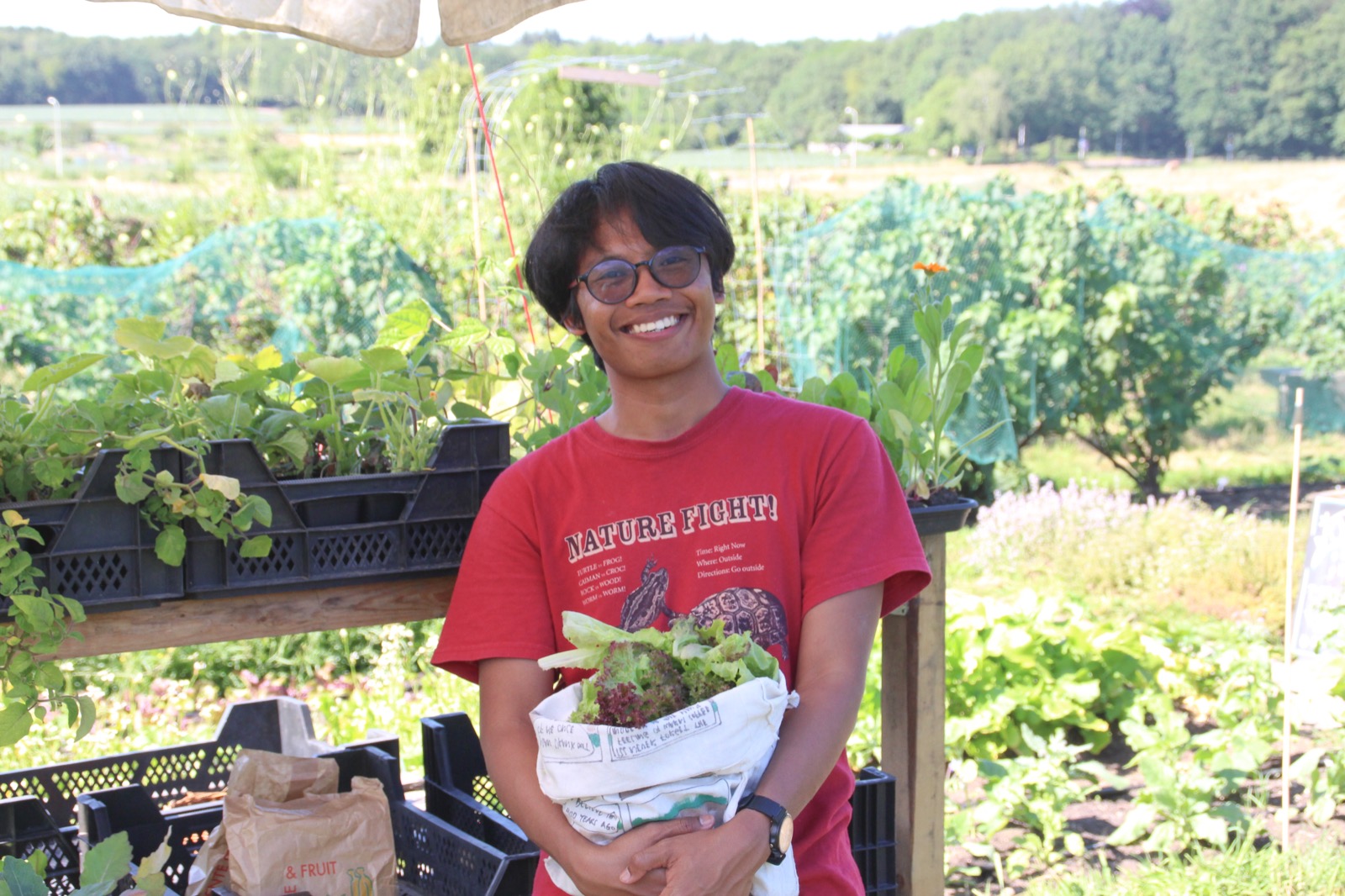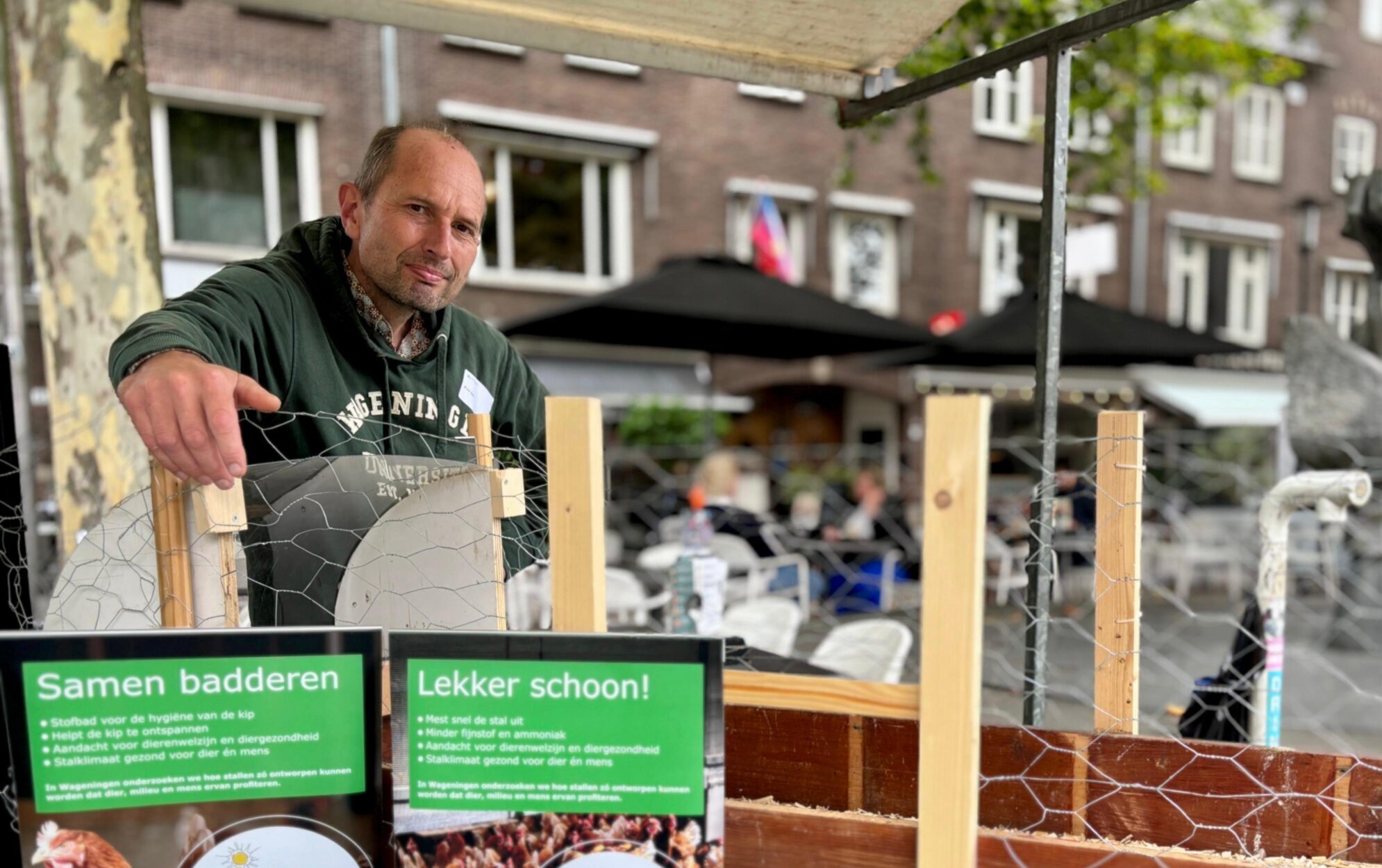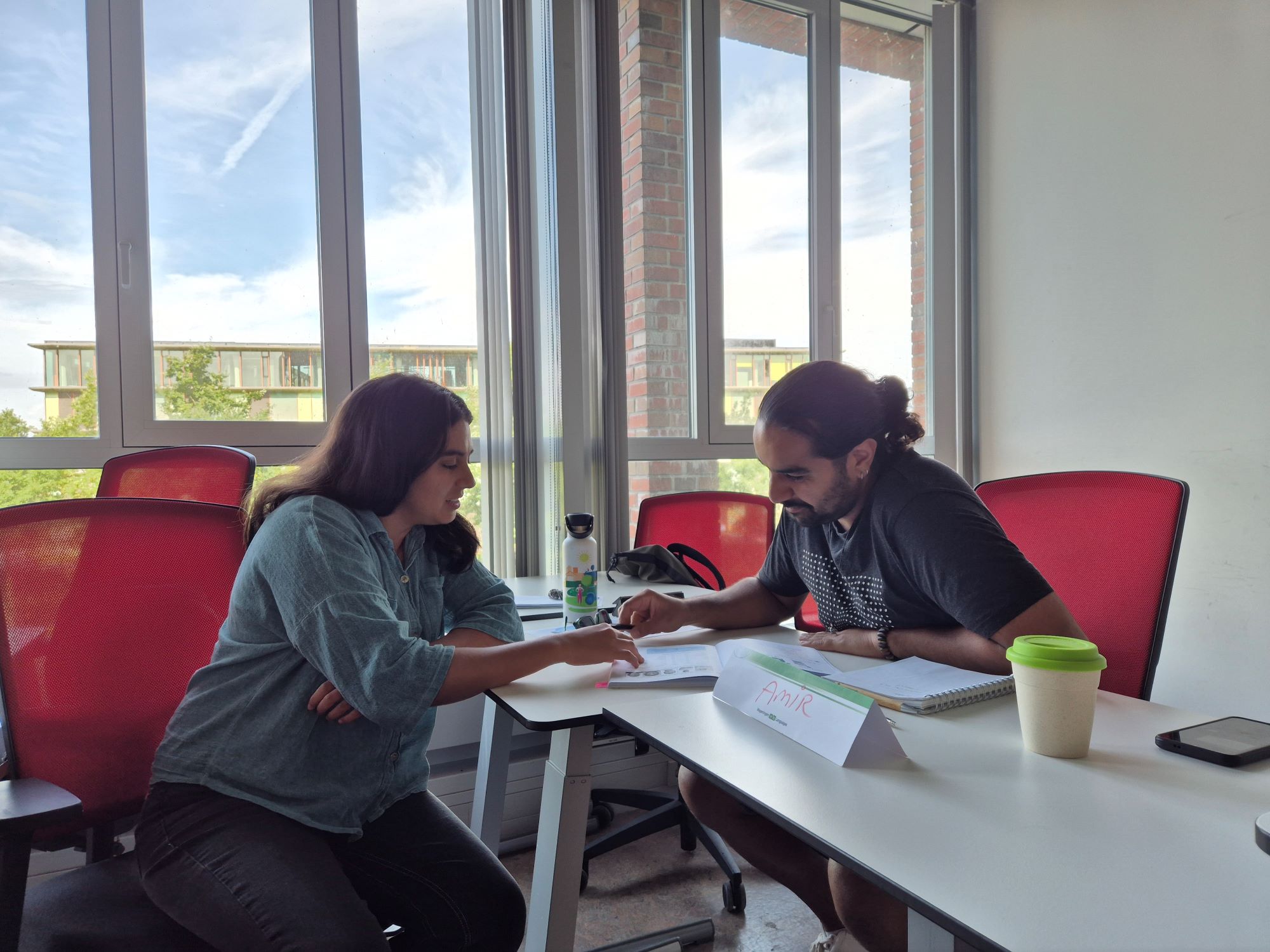It is not difficult to find Dutch language lessons. But they can be expensive. WUR student Anne Walther wanted to change this. She launched the C.L.U.B. Coaching foundation, where students pay for their Dutch language lessons by doing community service work.
‘Learning Dutch is not cheap. It can easily cost you hundreds of euros’, says Walther. ‘Not nearly everyone who comes to the Netherlands is reimbursed for Dutch language lessons.’ That is why you only pay for your study book at Club Coaching. The rest of the fee can be paid by doing community service work with one of the local volunteering organisations. The students who chose this option have the added advantage of being able to apply their newly acquired knowledge.
Walther’s Dutch language lessons are rather different from the average course. Yes, there is a weekly practice session, but the students decide what they wish to focus on. Do they want to expand their vocabulary or learn to strike up a spontaneous conversation? Meanwhile, over 500 students have taken a course. WUR students, partners of people coming to the Netherlands for work or study and asylum-seekers.
Meeting people
One of them is Abdul Manaf from Indonesia. ‘I came to Wageningen to study in February. Soon after, there was a lockdown. There was hardly anyone in my house, my classes moved online, and I didn’t really know anyone. It was great to be able to leave the house and meet people.’ Manaf volunteered at Wageningen’s herb garden Sayuran. He helped with social media and photography.
‘My Dutch focuses on food. I love cooking and want to learn the Dutch words for ingredients. On the market, I try to do all my grocery shopping in Dutch, but this is not always easy. As soon as people realise I’m not Dutch, they switch to English. Moreover, there is only one Dutch student living in my corridor, which means everything is done in English. Both at home and at the university.’
Painting and baking
April Corales from the Philippines worked at a retirement home in exchange for her Dutch lessons. ‘I am a nurse and wanted to get some experience in my field here. I did activities with aged people who have dementia, such as painting and baking. My husband is doing a PhD at WUR. Our five-year-old daughter is probably the best Dutch speaker out of the three of us. She is attending school here and is a fast learner. I want to keep up, so we practice together when school is out!’

 Abdul Manaf at the Sayuran garden.
Abdul Manaf at the Sayuran garden. 

